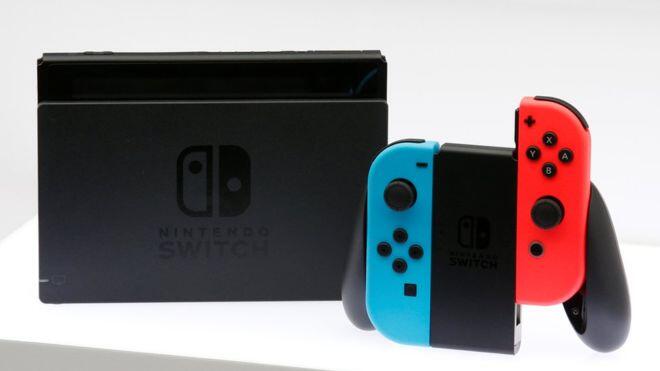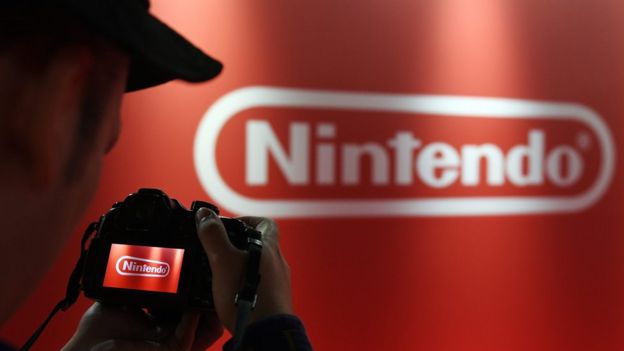Nintendo has said it will release its long-awaited new console, the Nintendo Switch, on 3 March.
It will cost $299.99 in the US, £279.99 in the UK and 29,980 yen ($260) in Japan, more than most analysts had been expecting.
The stakes are high for the Japanese firm after its most recent console, the Wii U, failed to replicate the success of the original Wii.
Nintendo shares dipped as details of the launch trickled out.
Mario’s back
Nintendo revealed in October last year that the games machine would be a handheld device that doubles as a home console.
Previously code-named NX, the Switch looks like a tablet computer with controllers that attach to its sides.
Nintendo Switch
What we know in numbers
$299.99
US price tag
- ¥29,980 Japan launch price
- 2.5 to 6.5 hours battery life
- 80+ games in development
Games will be delivered on small cartridges, a nod to older Nintendo consoles.
The firm says that about 80 games were in development, including a new Mario game called Super Mario Odyssey, out late in 2017.
Other details announced on Friday included:
- Console comes with 32GB of storage – extendable with a MicroSD card slot
- Plans to end regional locking – meaning games could be played on all consoles – no mater where in the world they were bought
- Multiplayer online gaming – initially free but later paid-for
- A smartphone app for social aspects of games including chat function
Nintendo consoles: A history in pictures
‘Watershed moment’
Some analysts believe the device could be Nintendo’s “last shot” at selling a home console, after the WiiU proved a flop.
It was rapidly outsold by Sony’s PS4 and Microsoft’s Xbox One, although Nintendo has enjoyed success with its handheld 3DS device.
“This is another watershed moment for the company because the Switch kind of epitomises the new strategy that the company is trying to put into practice,” said Piers Harding-Rolls, gaming analyst at IHS Technology.
“This is being positioned as more of a home entertainment device with mobile capabilities. The big deciding factors are the pricing and the marketing. You would hope that they’ve learnt the lessons of trying to market the Wii U.”
By releasing something that allowed gamers to play Nintendo titles both at home and on the move, the firm could find a “very lucrative middle ground”, said Ovum analyst Paul Jackson.
“Pure console gamers are likely to be disappointed here as it will probably be a powerful mobile device (battery allowing) but a comparatively weedy dedicated home one.”












